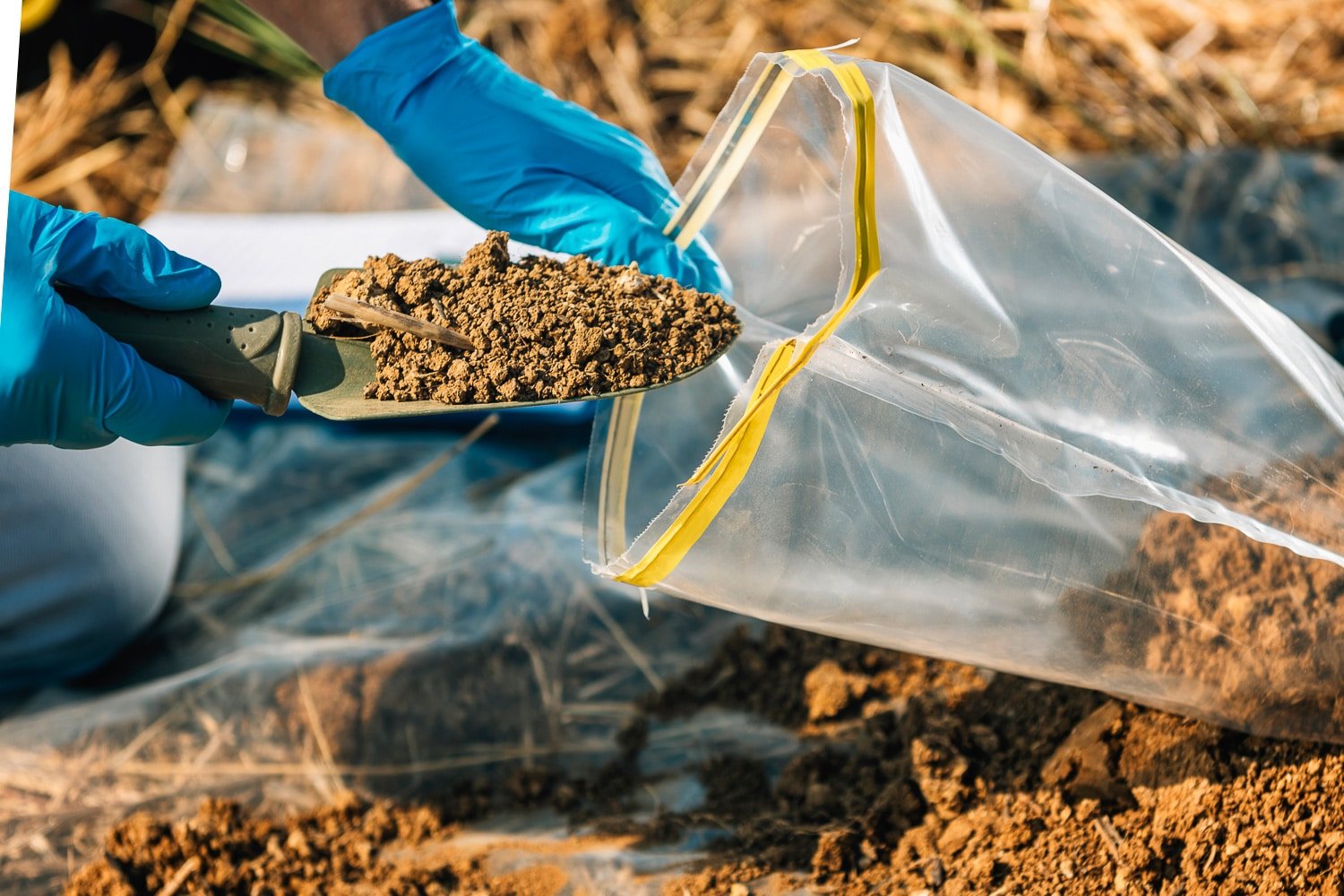Ultimate Guide to Fertilizing Sunflowers: Best Tips & Requirements
Did you know that proper fertilization can increase sunflower yields by up to 20%? Sunflower growers worldwide have discovered the secret to maximizing their sunflower production lies in providing the proper nutrients at the right time. Using fertilizer amendments tailored to their needs, they have witnessed remarkable results. Our article will help break down everything you need to know about the how, why, and when for fertilizing sunflowers for quality, plant vigor, and overall yield, but we’ll make it easy to follow and understand.
From soil sampling and testing to selecting the ideal fertilizer formulation, we’ll guide you through optimizing your sunflower garden for a vibrant display of golden blooms.

Key Points: Fertilizing Sunflowers
Here are key points from this article on Understanding Sunflower Fertilization Requirements:
- Sunflowers’ Nutritional Needs: Sunflowers require nitrogen for leaf development, phosphorus for roots and flowers, and potassium for strength and disease resistance.
- Factors Influencing Fertilization: Soil quality, weather, planting density, and previous soil nutrients affect sunflower fertilizer requirements. Soil testing is recommended for insight into nutrient needs.
- Balancing Nutrients for Growth: A balance of macronutrients (NPK) and micronutrients (such as iron, manganese, and zinc) is crucial. Use fertilizers formulated for flowering plants, applying them at appropriate times.
- Fertilization Stages and Methods: Fertilize during the vegetative, bud formation, flowering, and seed development stages. Choose between pre-plant and side-dress application methods, considering the pros and cons of each.
- Organic Nutrient Management: Use compost, manure, and natural amendments like bone meal and kelp extract for organic sunflower nutrient management.
Understanding Sunflower Fertilization Requirements
To ensure the healthy growth of sunflowers, it’s crucial to understand their specific nutritional needs. Several factors influence the fertilizer requirements for these vibrant flowers, and finding the right balance of macronutrients and micronutrients is key to achieving optimal growth.
Nutritional needs specific to sunflowers
Sunflowers have unique nutritional requirements that differ from other plants. They require ample nitrogen, phosphorus, and potassium (NPK) for robust growth.
Nitrogen promotes leaf development and overall plant vigor, while phosphorus aids root development and flower production. Potassium helps with plant strength and disease resistance.

Factors Influencing Sunflower Fertilizer Requirements
Several factors come into play when determining sunflowers’ best fertilizer amount requirements. These include soil quality, weather conditions, planting density, and previous nutrient levels in the soil.
Conducting a soil test before planting can provide valuable insights into any deficiencies or nutrient imbalances that need to be addressed through fertilization.

Balancing macronutrients and micronutrients for optimal growth
Finding the right balance of macronutrients (NPK) and micronutrients is essential for ensuring optimal growth in sunflowers. While NPK is considered a primary nutrient, micronutrients such as iron, manganese, zinc, copper, boron, molybdenum, and chlorine are equally essential but are required in smaller quantities.
To meet these nutrient requirements effectively:
- Choose a balanced fertilizer formulated explicitly for flowering plants.
- Follow label instructions regarding application rates.
- Consider using only organic fertilizers or compost to enhance soil fertility naturally.
- Apply fertilizers at appropriate times during different stages of plant growth.
- Monitor plant health regularly to identify any signs of nutrient deficiencies or excesses.
Understanding the specific nutritional needs of sunflowers and taking appropriate measures to meet those needs will contribute significantly to their vibrant growth and abundant blooms.
Timing and Types of Sunflower Fertilization
To ensure healthy growth and optimal yield, it’s crucial to understand the timing and types of fertilization for sunflowers. Let’s explore the different stages of green development that require fertilization, the choice between pre-plant and side-dress application methods, and the selection of appropriate fertilizer formulations.
Different Stages Requiring Fertilization in Sunflowers
Sunflowers have distinct growth stages that necessitate specific fertilization requirements.
- Vegetative Stage: Sunflowers focus on leaf and stem development during this stage. Applying nitrogen-rich fertilizers can promote vigorous vegetative growth.
- Bud Formation Stage: As buds begin to form, providing phosphorus-rich fertilizers can enhance flower bud development.
- Flowering Stage: This is a critical stage where sunflowers produce vibrant blooms. Phosphorus and potassium are essential nutrients during this phase to support flower production.
- Seed Development Stage: To encourage healthy seed formation, it is important to supply adequate potassium-based fertilizers.

Choosing Between Preplant and Side-Dress Application Methods
You have two primary options: preplant or side-dress application methods.
Preplant Application
Pros:
- Fertilizing before planting allows for uniform nutrient distribution.
- Provides nutrients directly to the root zone for early plant uptake
Cons:
- Nutrient availability may diminish over time.
- Requires accurate estimation of nutrient needs before planting.
Side-Dress Application
Pros:
- Enables targeted nutrient delivery during critical growth stages.
- Allows adjustments based on plant needs throughout the growing season.
Cons:
- Requires additional labor for application during the growing season.
- It may result in uneven nutrient distribution if not applied carefully.
Selecting Appropriate Fertilizer Formulations for Sunflowers
Choosing the correct fertilizer formulation is crucial in meeting your sunflower’s nutrient requirements.
- Nitrogen (N): Look for a fertilizer with a higher nitrogen content during the vegetative stage to promote robust growth.
- Phosphorus (P): Opt for a phosphorus-rich fertilizer during bud formation and flowering stages to support flower development.
- Potassium (K): Select a fertilizer with adequate potassium levels during seed development to enhance seed formation.
When selecting fertilizers, consider the soil composition, nutrient deficiencies, and specific sunflower varieties.

Maximizing Growth and Yield: The Best Time to Fertilize Sunflowers
Determining the ideal timing for applying fertilizers to sunflowers is crucial in maximizing their growth and yield. Early-season fertilization promotes healthy plant development, while late-season fertilizer and fertility management strategies can help increase yields.
Impact of early-season fertilization on plant development
Applying fertilizer during the early stages of sunflower growth provides essential nutrients that support vigorous plant development. This initial boost helps establish a strong root system vital for nutrient uptake and overall plant health. Providing the necessary nutrients early on sets the foundation for robust stem and leaf growth, leading to larger and healthier sunflower plants.
Pros:
- Promotes healthy root development
- Supports vigorous stem and leaf growth
- Enhances overall plant health
Cons:
- Risk of over-fertilization if not done correctly
- Requires careful monitoring of nutrient levels

Late-season fertility management strategies for maximizing yield
As sunflowers progress through their lifecycle and grow, they require different nutrient ratios to maximize yield potential. Late-season fertility management focuses on providing adequate nutrients during critical growth stages such as bud formation, flowering, and seed filling. This ensures the plants have sufficient resources to produce large, well-filled heads with abundant seeds.
Pros:
- Boosts flower production and seed formation
- Increases seed size and weight
- Improves overall crop quality
Cons:
- Requires precise timing to avoid excessive vegetative growth at the expense of seed production
- May require adjustments based on specific soil conditions or nutrient deficiencies
Understanding the importance of both early-season fertilization and late-season fertility management strategies can optimize your sunflower crop’s growth and harvest yield potential.

Organic Sunflower Nutrient Management Tips
Organic alternatives are gaining popularity due to their contribution to sustainable farming practices. Here are some tips for organic sunflower nutrient management:
Utilize compost and manure as nutrient sources
Compost and manure are some of the best ways to restore organic matter and essential soil nutrients to your sunflowers. These natural fertilizers enrich the soil and improve its structure, water-holding capacity, and fertility.
Incorporating well-rotted compost or aged manure into the soil before planting can help promote healthy growth and increase the oil content in the sunflower seeds.
Supplement with natural amendments
In addition to compost and manure, you can supplement your organic sunflower production with natural amendments like bone meal or kelp extract.
Bone meal is an excellent source of phosphorus, crucial for root development and flower formation in sunflowers. Kelp extract, on the other hand, provides trace minerals and sulfur that aid in plant growth and stress tolerance.

Key Takeaways on Fertilizing Sunflowers
Congratulations! You now have a solid understanding of how to fertilize your sunflowers for optimal growth and yield. By following the timing and types of fertilization, you can maximize their potential and unlock the nutrients they need.
To ensure your sunflowers flourish:
- Remember to provide them with the necessary nutrients at the right time.
- Consider using organic methods for nutrient management if you prefer a more sustainable approach.
- Remember, your sunflowers count on you to give them the best care possible!
Learn More About Growing Healthy Robust Sunflowers
We have so much information for you to grow the best sunflowers you can. After many years of trial and error, testing varieties, and growing for fun, we have compiled a lot of information that we can share to help you get started growing wonderful sunflowers in your summer and fall gardens. Here are some of our most popular posts to get you started:
Looking to Optimize Your Garden Fertilization?
Check out these posts on fertilizing your favorite plants:
FAQs
How often should I fertilize my sunflowers?
Sunflowers typically benefit from an initial application of fertilizer during planting or shortly after germination. After that, it is recommended to apply fertilizer every four to six weeks throughout their growing season. However, be cautious as this can lead to excessive vegetative growth instead of focusing energy on flower development.
What type of fertilizer should I use for sunflowers?
A balanced fertilizer with equal amounts of nitrogen (N), phosphorus (P), and potassium (K) is generally suitable for sunflower growth. Look for a fertilizer labeled with an NPK ratio, such as 10-10-10 or 20-20-20. Consider incorporating organic matter into the soil before planting or using composted manure as a natural source of nutrients.
Is there a specific time of day when I should fertilize my sunflowers?
Applying fertilizer in the early morning or late afternoon when temperatures are cooler is best. Applying in the morning allows the plants to absorb nutrients without being stressed by intense heat. Avoid applying fertilizer during peak sunlight hours, as it can potentially harm the leaves, stems, and roots due to rapid evaporation.
Can I use homemade compost as a fertilizer for sunflowers?
Absolutely! Homemade compost is an excellent natural fertilizer for sunflowers. It enriches the soil with loamy organic matter, improves its structure, and provides a slow release of nutrients over time. Just make sure the organic compost used is well-rotted before applying it to avoid any potential weed seeds or pathogens.
Are there any signs of nutrient deficiencies in sunflowers?
Yes, several signs indicate nutrient deficiencies in sunflowers. For example, yellowing leaves may indicate a lack of nitrogen, while stunted growth and poor flowering can indicate phosphorus deficiency. Consider your plants’ appearance and consult a gardening expert if you suspect any nutrient-related issues.
Remember, providing proper nutrition to feed your sunflowers will help them grow strong and produce beautiful blooms. Happy fertilizing!

Author: Laura Kennedy
Writer & Owner of Little Yellow Wheelbarrow
Laura is a highly skilled gardener and fervent flower enthusiast. Despite her playful battle with plant spacing guidelines, Laura’s work inspires gardeners to create thriving, beautiful spaces that reflect both creativity and sustainability.


















